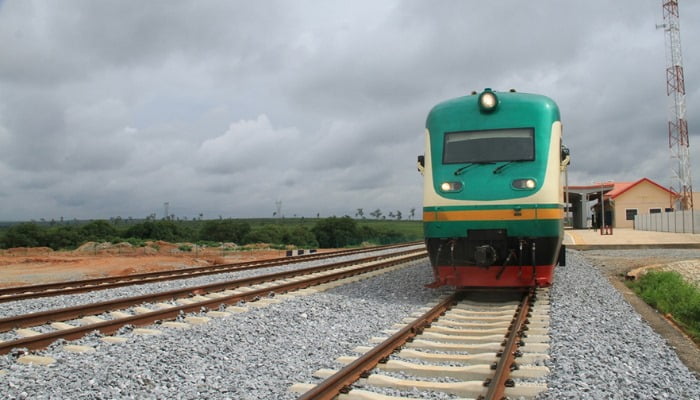
The TDF said this in a statement jointly signed by its Chairman, Danjuma Mohammed and Secretary, Wale Adedayo on Tuesday in Abuja.
It said the start of service on the Lagos-Kano Railway Line was the culmination of silent work by the President Bola Tinubu administration to get things done with minimum fuss.
“We laud and celebrate completion of repair works and reopening of the long-abandoned Lagos-Kano railway line by the administration of President Tinubu.
“Our joy and excitement can only be understood within the context of the memorable contributions of the 1,132km railway line to the economic, social, political and cultural development of Nigeria.
“For the avoidance of doubt, the iconic Lagos-Kano Railway Line was the bedrock of Nigeria’s cash crop exports to the outside world under.
“The colonial administrations from 1898 to decades after the country’s independence in October 1960,” the statement recalled.
It noted that aside from the Rivers Niger and Benue which were natural pivots in the making of Nigeria’s geo-political circumstances, the Lagos-Kano Railway Line was a major connector for trade.
It said it was also the major connector for political, economic, and socio cultural relationships between the South and the Northern parts of the country.
The TDF said it was, however, sad that succeeding administrations neglected such a critical transport infrastructure and abandoned it to years of decay.
This, it said, was especially at the advent of crude oil as the mainstay of the country’s economy, to the detriment of the nation’s socio-economic advancement.
“The abandonment of the Lagos-Kano railway line, which stems from refusal of successive administrations to invest adequately in railway transportation.
“Until former President Muhammadu Buhari came onboard, was the beginning of the decline of Nigeria’s economy of the 1970s.
“Happily though, President Tinubu has taken a bold step to reverse the declining situation by rehabilitating the Lagos-Kano railway line, among other infrastructural projects, to boost food supply and revive the ailing economy.
“We are convinced that the resumption of transport operations on the Lagos-Kano railway route, will bring back the lost glory of socio-cultural interactions and integrations among the diverse ethnic groups of Nigeria,” it said.
It said the development would also drastically reduce the rising cost of food prices, and help resuscitate all dead or epileptic economic activities in markets and communities along the rail route.
It added that the accomplishment of such an infrastructural feat resonated with the wisdom behind Tinubu’s decision to present a national budget of overwhelming capital expenditure component in the 2024 appropriation Act.
It said this major achievement by Tinubu reinforced its position that he needed time, support and stability in the polity to put Nigeria in her pride of place among the comity of great nations of the world.
The TDF, therefore, urged the organised labour to see reasons with the Tinubu-led administration on the minimum wage crisis.
“We also strongly appeal to the leadership of the Nigeria Labour Congress (NLC) and the Trade Union Congress (TUC) to accept the Federal Government’s offer of a N62,000 minimum wage.
“And also desist from any further action capable of heating up or destabilising the polity. As a responsible organisation, we are not averse to the need for a wage increase for Nigerian workers.
“But It is our opinion that wages should be increased only as an incentive for efficiency, effectiveness and upward productivity, not as a factor for mitigating the effects of inflation in the country.
“This is because the trajectory of wage increases in Nigeria, from the salary award of the Udoji Commission of 1974 till date.
“Shows that wage and salary increases intrinsically amplify multi-dimensional inflation in the economy,”TDF added.
It charged the organised labour to see itself as partners in the Federal Government’s quest to expand the economic base of the country through massive investments in infrastructure.
NAN reports that the the Lagos–Kano Standard Gauge Railway is a 1,343km standard gauge railway.
The Lagos-Kano Railway Line will connect the Atlantic Ocean port city of Lagos to Kano, near the border with Niger, passi through Abuja.
The railway replaces the Cape gauge Western Line built by the British in 1896–1927, which has a lower design capacity .